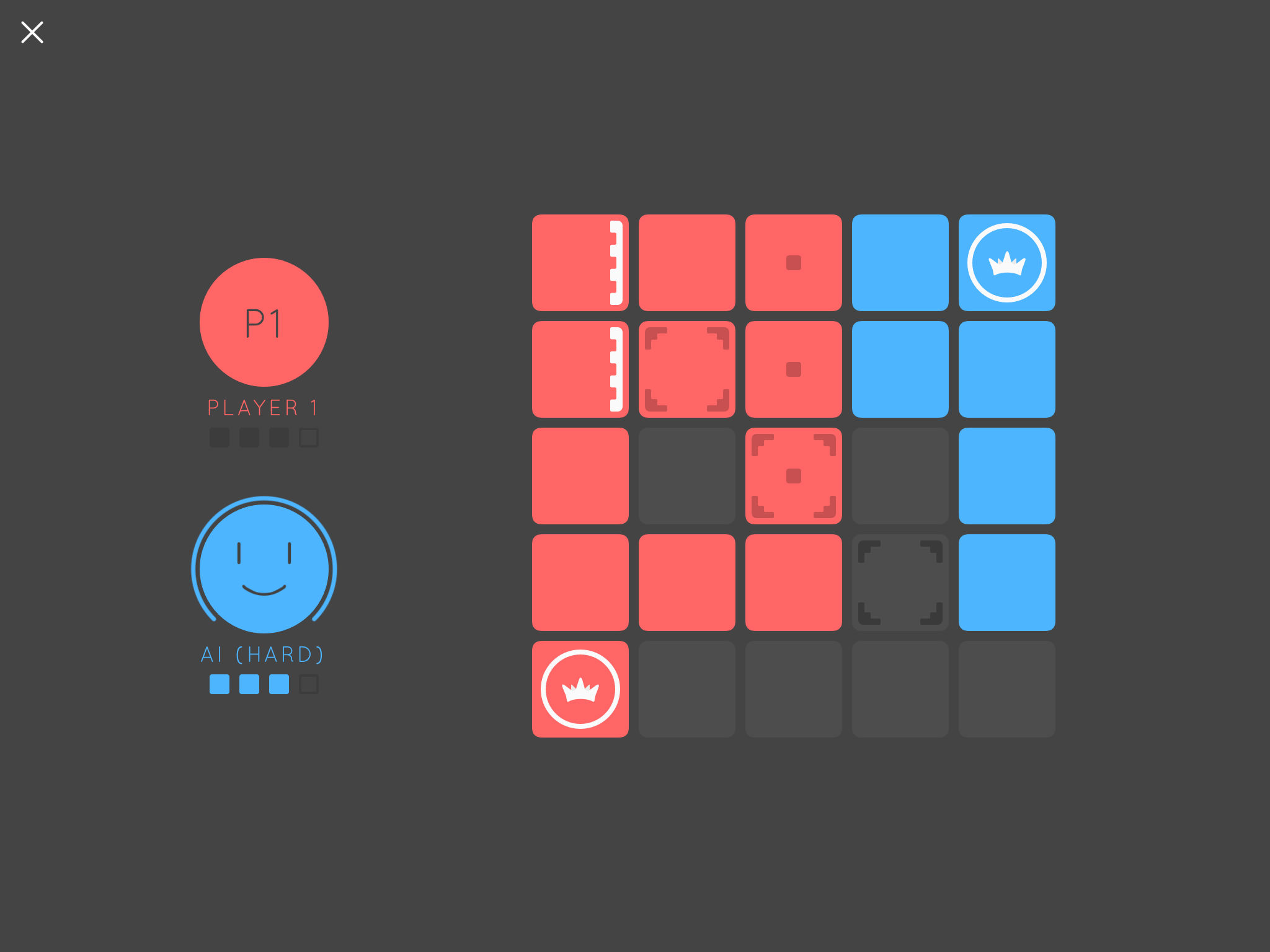
There are already plenty of classic abstract games on the app store. Versions of Chess, Go and many others abound, each of which is, in theory, deep enough to last a lifetime.
Yet developer Space Bears thinks we need another. It thinks we need Kindo.
It could be right. All the typical abstract games arose out of people playing face to face hundreds of years ago. Kindo, by contrast, feels tailor made for the mobile age.
It's short and snappy - pass and play games last just a few minutes. Yet it's also got a decent amount of depth and challenge.
BoxyThe game is played on a grid of squares. Each player's "king" tile sits on opposite corners. On your turn you can take control of two tiles on the grid adjacent to squares you already own.
But all your tiles need to connect back to the king somehow. If they're cut off by an enemy move, your opponent claims all the stranded tiles for themselves.
There's a few other rules on top of this simple framework. Instead of placing a tile you can fortify an existing one from one direction to stop your opponent from taking it.
If you cut off any opposing tiles you get an extra move next turn. If you play over a freshly-laid tile, your opponent gets an extra move. That's it.
Although straightforward, it's not that intuitive. Still, it won't be long before you're confidently thinking several moves ahead. It helps that the interface makes up for a lot of that lost intuition by being smooth, stylish and easy to use.
Quadratic
Games of Kindo play like a quickfire joust in a cramped pen. Each player darts forward at first, then tries to consolidate their position, while seeking for weak points to exploit.
When a player finds one, games quickly collapse toward victory. Sometimes one move claims all the opposing tiles. Other times managing to get the maximum of four moves in a turn makes it easy to rush in and grab the king square.
It almost feels like tic-tac-toe, if that game were to be re-invented with enough depth to make you pause and think and worry about your chosen move after it's done.
With its limited play field, Kindo can be ruthless like that. One mistake that leaves a route open to your king and bang! It's game over.
The first two levels of AI should prove easy for most people, and are best for exploring initial strategies. The hard level is more challenging and it'll take a bit of practice before you can beat it regularly.
After that there's pass and play or a super-accessible asynchronous option. But by this time, minor flaws in Kindo may well have become apparent.
SquareThe problem is that in stripping the abstract framework down for easy mobile play, eveything's a bit too simple. It's not so much a lack of depth, although Kindo is perhaps a little less challenging than it first appears, but lack of variety.
Other abstracts tend to either have more rules, or a greater variety of board positions. By reducing both to a minimum, there's less to explore.
After playing for a while, games start to look the same and interest begins to wane, even with the diversity offered by limitless human opponents online.
However, there's currently nothing else like this around. Having such a quickfire, brutal strategy game at your fingertips is addictive and demanding.
It's so easy to start game after game as the hours slip away. It's just that after, you may find each of those hours looked and felt very much like the last.
Kindo

